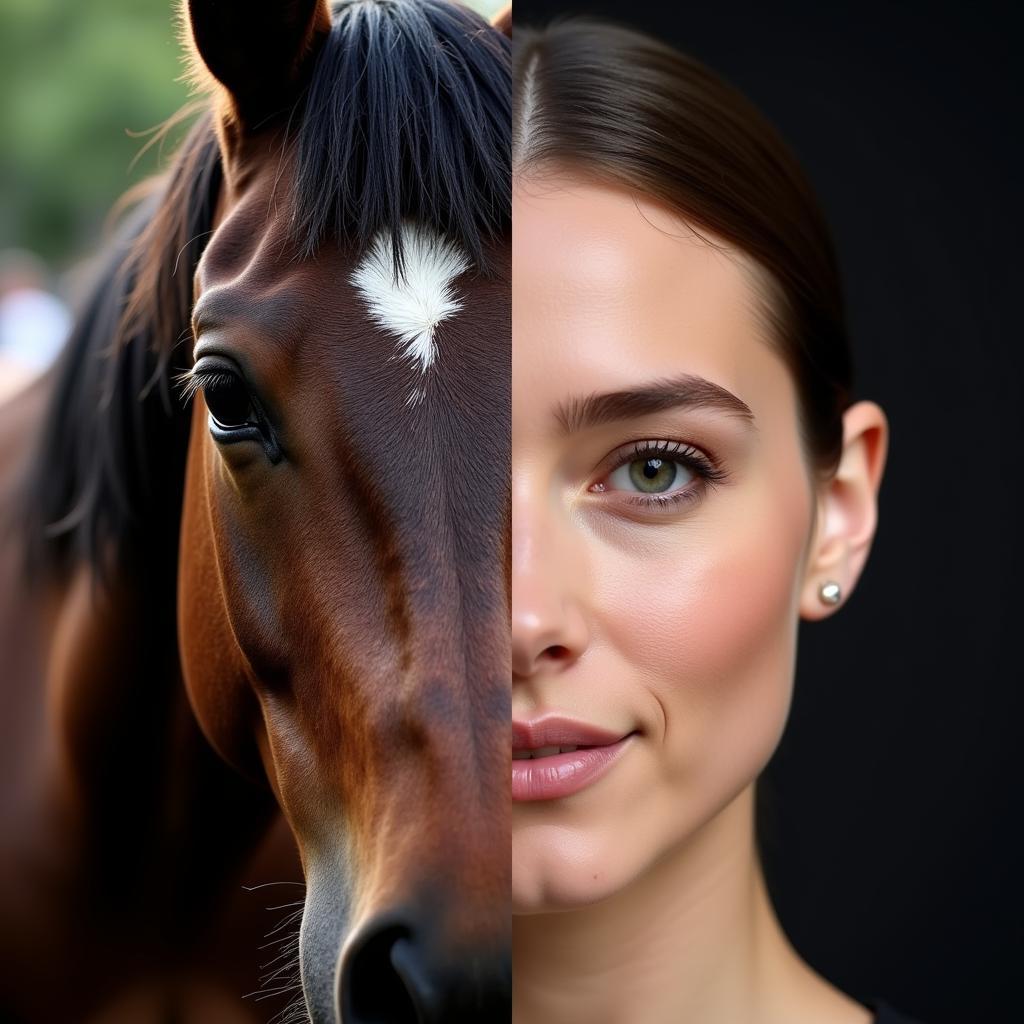The internet is rife with discussions about the “Actress That Looks Like A Horse.” This phrase, often used in online forums and social media, highlights how perceived similarities between people and animals can capture public attention. This article delves into the psychology behind these comparisons, explores the ethical implications, and examines the impact on both the individuals being compared and our understanding of animal welfare.
Unpacking the “Actress That Looks Like a Horse” Search
Why do people search for an “actress that looks like a horse?” This seemingly odd query reveals a few key human tendencies. Firstly, we are naturally drawn to patterns and comparisons. Finding resemblances, even unusual ones, can be a source of amusement or intrigue. Secondly, the anonymity of the internet allows for more open, and sometimes less sensitive, expressions of these observations. Finally, the search itself may be driven by simple curiosity or a desire to connect with others sharing the same thought.
 Comparison of Facial Features Between Actress and Horse
Comparison of Facial Features Between Actress and Horse
The Ethics of Animal Comparisons
While comparing an actress to a horse might seem harmless, it’s important to consider the potential ethical implications. Such comparisons can contribute to the objectification of both the actress and the animal. Reducing a person to their physical appearance can be dehumanizing, while comparing them to an animal can perpetuate harmful stereotypes. It’s crucial to remember that both humans and animals deserve respect and should not be reduced to mere objects of amusement or ridicule.
Horse Features and Human Perceptions
What constitutes “looking like a horse”? Often, it’s the elongated facial features, large eyes, and strong jawline that trigger the comparison. However, these features are perfectly natural in both horses and humans, and their presence in an actress doesn’t diminish her talent or value. It’s crucial to remember that beauty standards are subjective and constantly evolving.
The Impact on Actresses and Animal Welfare
Being compared to an animal can be distressing for an actress, especially if the comparison is widespread or malicious. It can affect their self-esteem, career prospects, and mental well-being. Furthermore, this focus on physical appearance distracts from the actress’s actual work and talent. Additionally, the “actress that looks like a horse” search can unintentionally trivialize important conversations about animal welfare. Instead of focusing on the ethical treatment of horses, the discussion shifts to superficial comparisons, diverting attention from real issues.
Is There an “Actress That Looks Like a Horse”?
Ultimately, the idea of an “actress that looks like a horse” is subjective. Beauty is in the eye of the beholder, and what one person perceives as a resemblance, another may not. It’s important to be mindful of the language we use and the potential impact our words can have on others.
 Actress Showcasing Her Talent
Actress Showcasing Her Talent
Conclusion: Beyond Superficial Comparisons
While the “actress that looks like a horse” search might stem from innocent curiosity, it’s important to be aware of the potential for harm. Let’s strive to appreciate both human and animal beauty without resorting to reductive comparisons. Instead of focusing on superficial resemblances, let’s celebrate the unique qualities and talents of individuals and advocate for the ethical treatment of all living beings.
FAQ
- Why do people compare actresses to horses?
- Is it ethical to compare people to animals?
- How can these comparisons affect actresses?
- What are some common horse-like features?
- How can we shift the focus from appearance to talent?
For further assistance, please contact us at Phone Number: 0772127271, Email: [email protected] or visit our address: QGM2+WX2, Vị Trung, Vị Thuỷ, Hậu Giang, Việt Nam. We have a 24/7 customer service team.